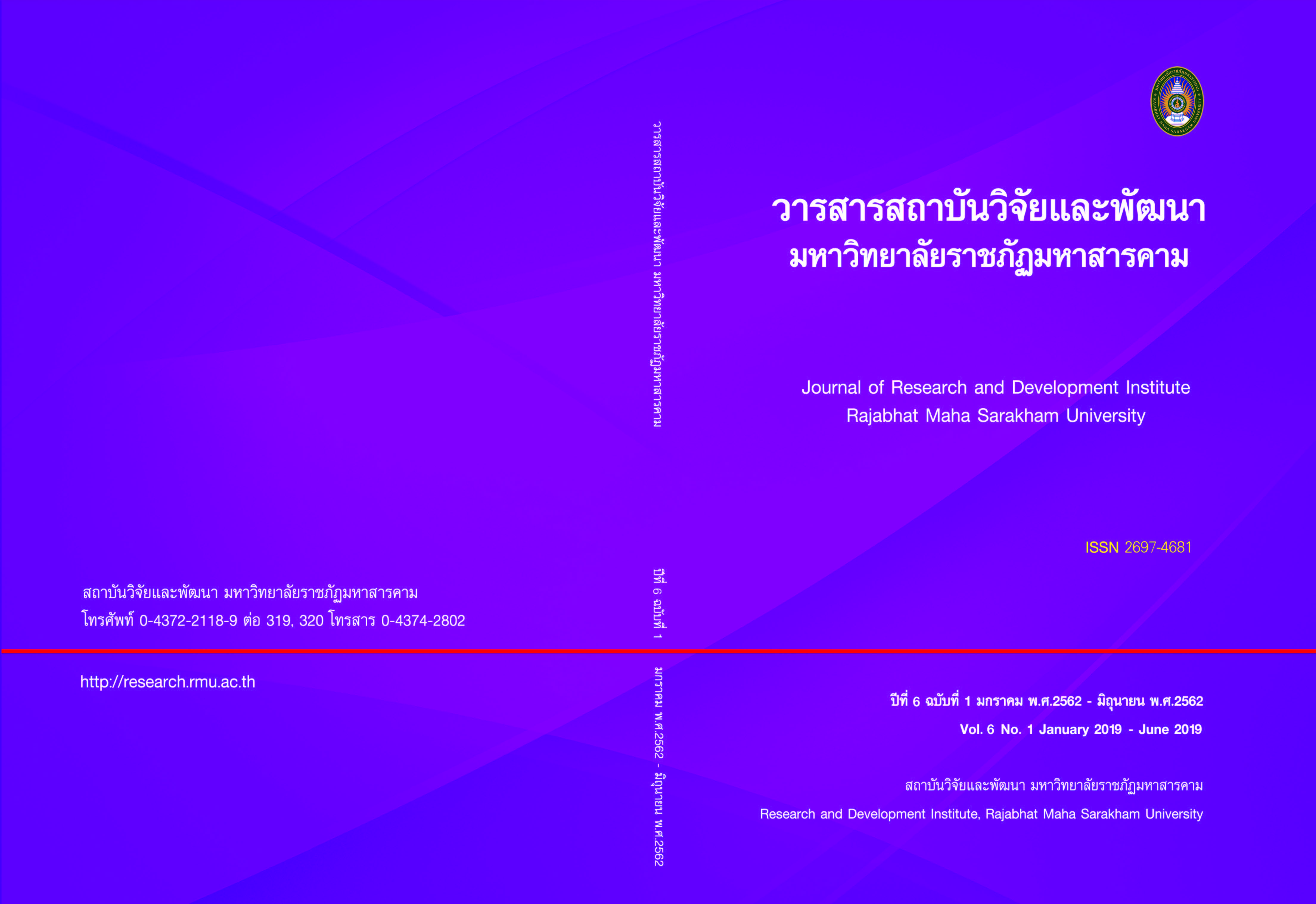A Development of Effectiveness Model for Work Performance of Primate Sub-District Monk in Monks Government Region 9
Keywords:
Mode of Effectiveness, Work Performance, Primate Sub-District Monk, Region 9.Abstract
The purposes of the research were to analyze the factors affecting work performance of the primate sub-district monk in region 9., to establish a model for improving work performance the primate sub-district monk, and to evaluate the model. The research methodology was divided into two phases: 1) quantitative research and 2) qualitative research. Phase 1 focused on analyzing the factors affecting work performance the primate sub-district monk in region 9. The population was seven hundred and eighty six the primate sub-district monk in region 9, and the sample was two hundred and sixty six the primate sub-district monk in region 9. The instrument was a questionnaire with.92 reliability index. The statistics used were PATH ANALYSIS with the.05 level of statistical significance, and Pearson Correlation. Phase 2 focused on designing and assessing a model for improving work performance of the primate subdistrict monk in region 9 by experts, and the model was assured by the Expert Verify technique and criticizing method. The data were collected by questionnaires and criticizing forms, and the data analyzed and synthesized were compared with the research context and used to improve a model based on the effectiveness of administrative model for work performance of the primate sub-district monk in region 9. Results of the research were as follows; (1) The finding showed that the factors affected work performance of the primate sub-district monk in region 9 were support of adults monk, working incite, ethic reasons and self-confidence. (2) The development model for improving work performance of the primate sub-district monk in region 9 consisted of four guideline development: support of adults monk, emotional excellence in working, improving ethic reasons and self-confidence development. (3) The findings indicated that the value of the training model efficiency regarding the assessment of the experts was at a high level.
References
Duangduen Bhanthumnavin. (1997). Beliefs and Practices in Buddhism of Thai People: Cultivating Moral Training and Quality of Life. Bangkok : Institute of Behavioral Science Research, Srinakharinwirot University Prasarnmit. [in Thai].
Joreskog, Karl G. & Sorbom. (1998). PATH ANALYSIS User’s Reference Guild. Chicago : Scientific Software International.
National Buddhism Office. (2010). Buddhism in Thailand. Bangkok : Secretariat Division. [in Thai].
Neeon Phinpadit. (2004). Psycho-Social Indicators of Work Behaviors in Policemen Under Police-Provincial 4. Bangkok : National Research Council of Thailand. [in Thai].
Nichaphat Phopang. (2007). Alternative : Psychological characteristics and situations related to ethical work behavior of government treasurers. Master thesis M.Ed. (Psychology). Bangkok : Srinakharinwirot University Prasarnmit. [in Thai].
Rawikarn Duendarw. (2003). Psychosocial factors related to safe driving behavior of Bus driver of BMTA. Journal of Psycho-Behavioral Science : Thai Behavioral System, 4 (1) : 49-82. [in Thai].
Religious Affairs Department. (2001). Sangha Administrators Guide on the topic of Sangha Administration. Secretariat of the Sangha Association, Bangkok : Religion Printing. [in Thai].
Yamane, T. (1973). Statistics An Introductory Analysis. 3th edition. New York : Harper & Row.
Downloads
Published
How to Cite
Issue
Section
License
Articles that are published are copyrighted by the authors of the articles







